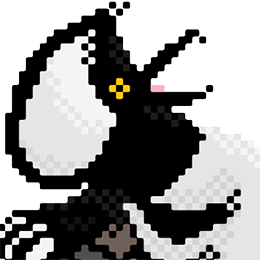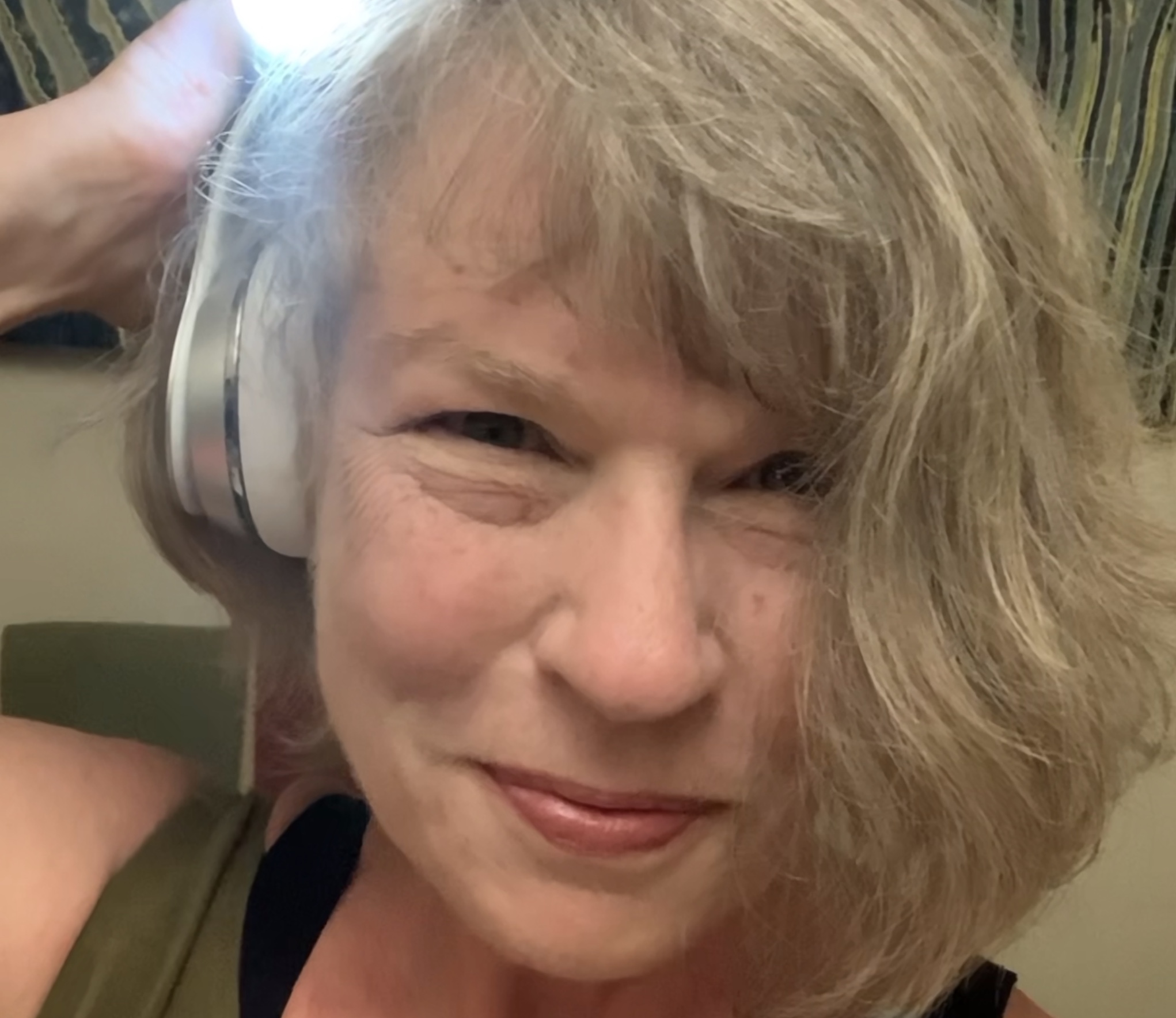Mine probably has to be mountain biking. I just love riding through the forest, sometimes catching some air time and swallowing the occasional fly whilst going downhill at 30km/h.

Possibly frowned upon by some but going fishing. Really feel in nature and I only keep what I know I will eat. Feels great to be out in nature and catch your own food.
As long as you’re respectful and sustainable, I’d say it’s totally cool. I also went fishing a couple times and it was pretty fun. The biggest thing I caught was another fishing rod however…

I’m also a fan of fishing. It is a good mix of being relaxed but also attentive to the water and nature. I do catch and release, but some people also get the benefit of taking home some pretty cool fish

I’m a bird watcher. I go birding every week. I built many sub-hobbies around it: photography, birdsong recording, blogging, cross stitching, and more. I find that when I’m out in nature, I can truly disconnect from my regular life stress and just be present in the moment.
I took this further by training and becoming a Master Naturalist though my local region’s chapter. This opened the door to a great community, learning, and volunteer work.

I love birding. What I think is most beautiful about it is that, (for me at least) it takes a goal-oriented activity of hiking, and turns it into pure discovery.
My approach to hiking was something like “well let’s go around 5 miles”. Then, I would find a hike about that long, go to the end, then turn around and walk back. This kind of approach is such an anemic way to enjoy nature. It’s something to conquer and then I go home when I’ve finished.
With birding, I do essentially the exact same activity, but I have thousands of excuses to just stop and appreciate the world around me. I know many people enjoy hiking in this way, but for me it was about the destination. Birding has transformed the way I go outside.
Besides this, I think the meditative nature of birding has made me more grateful in all aspects of my life.

My personal way is to actively restore it. Australia, for example, is a highly degraded and fragile country and there aren’t enough people getting out there and doing anything that has a measurable effect on the state of it. There are far more people actively ruining it.
To me, looking at it is not enough, we have to repair it. Looking back after a few years at the habitat you’ve created or the degradation you have reversed is true connectedness. You can say “I did that” and be proud of the change you’ve made.
"A society grows great when old people plant trees in whose shade they know they shall never sit” - slightly paraphrased.
That sounds almost inspirational…
How do you organize and find the time to do it? Did you join a group that already existed, or perhaps just go out with some friends? If you don’t mind me asking.

I quit my job and moved out into a rural area to put my money where my mouth is and actually try and restore something. I got another job doing “Landcare” or paid rewilding which is mostly chemical weed control. I set up a nursery to propagate and grow native plants (some fruits trees etc) and then I just plan some sites (or slap trees/plants into areas that are lacking), look after them a while and then repeat. I’ve got 20 years horticultural experience in a number of related industries so doing the actual work is just second nature.
The last planting I’ve just completed is a riparian zone next to a creek, 3000 plants or so. All by myself, from seed to pot to ground.
The hardest part is just committing to it each year, dependent on rainfall. Last 3 years we had La Nina so it was a lot of rainfall which made me work twice as hard (6500 plants total). El Nino will be depressing watching everything wilt (maybe burn) which will means I’ll reduce size of nursery and do other things. I do run a little charity thing disseminating Vetiver Grass (I posted a link to it as one of the first things I did here), getting people out and showing them how it’s done and then sending them off with some plants for a few bucks, far less than what the industry charges hence the “charity”. Sets people up so they can start attacking their worst problems.
How do I find the time? Just an hour here or there. Larger plantings might be a few hours in arvo when it cools down. As last project wound up, one hour or two adding grasses/sedges each weekend really pumps the numbers up. I think I planted 80 plants every weekend for months when the weather was good. Takes about an hour to 1.5 depending on how much weeding to do. Maintenance is handled with a bit of work but better design and understanding on how weeds work helps mitigate the amount of effort.
Here are some pics with some thoughts, I’d add photos here but it keeps erroring out with json errors:
https://aus.social/@treevan/110284722924931438
https://aus.social/@treevan/110324596499778557
I hope that helps.
Oh wow, that’s amazing! It sure sounds like a lot of hard work and care goes into your project. Cool pictures too.
Perhaps I should try joining a local gardening / urban farming collective myself when I find the right time, or something similar. Thanks for sharing!

In Australia, one can volunteer time to restoration through local government or catchment groups. They supply everything and you just do a couple hours once a month.
While ideally, it would be nice to see people get paid for work like that as time is valuable, it’s something at least. Usually the groups are filled with retirees so the labour isn’t efficient. It’s quite a perplexing situation, how do you get people out there? They have to want to do it. I often, as per the permaculture ethic of fair share, offer amounts of native plants for free to help someone get started with a project and no one ever takes me up, the effort in planting and maintenance takes more than the cost of the plants I guess.
When you can’t give things away for free, something is fucked up. No one has the time, the grind of life is too much. Restoration is a job, not a fun hobby.

My personal favorite is backpacking. It’s pretty common but I like the simplicity of just walking out into the wilderness and being so exposed to the elements.

Kayaking followed by hiking.

Kayaking for sure. I’ve been wanting to get into geocaching, which I think would be another great way to connect with nature.

Floating in the kayak on flat, clear water, under the trees, gazing at the little fish and salamanders darting through the reeds and lilies, sigh. Dragonflies make me giggle. Fast is fun too.
I go canoeing sometimes and it’s the exact same for me as well. It’s really relaxing.

I like to go camping during the summers. I get about as far away as I can from other people. Its really nice to be able to just walk around, observe the birds and lizards and bugs. The stars at night. I would love to be able to have a cabin and live out in the woods, but if everyone acted on that instinct there would be no nature left. Just suburb after suburb.
Yeah, camping is a really fun and unique experience that I would also enjoy doing again. But compared to the US and Canada, Germany’s camping grounds seriously suck. It really is almost like a mini suburb but with tents and RV’s instead.

Is that right? I had no idea. Hermann Hesse made it seem like you just grab a crusty piece of bread and a bottle of wine and walk out into the Black Forest. What a bummer! Does Germany have Right to Roam?
It seems that there’s a limited right to roam. But it’s still pretty limited. Germany is a very urbanized country with not that many large national parks and if there is a forest or a park then large portions of it are also wildlife sanctuaries that you’re not allowed to set foot in. Because of that, there isn’t a big camping scene and instead camping grounds are created with very little space between the individual lots to save space.
These camping grounds are meant to be convenient and accessible, so you tend to have a lot of people concentrated in an area of a forest that you can barely call wilderness.

Photography. I like birds, amphibians, and insects. I upload with location data to iNaturalist, which crowd-sources biodiversity. To that end, I will go to several different sites in my area at different times of the year so that I can contribute a variety of species at a variety of locations.
If you’re well-versed in identification, you can confirm species identification on the app too. I’m familiar with the calls of all the frogs in my area and will help identify frogs in recordings.

Swallowing flys at 30mph, snicker, sniker, snicker

